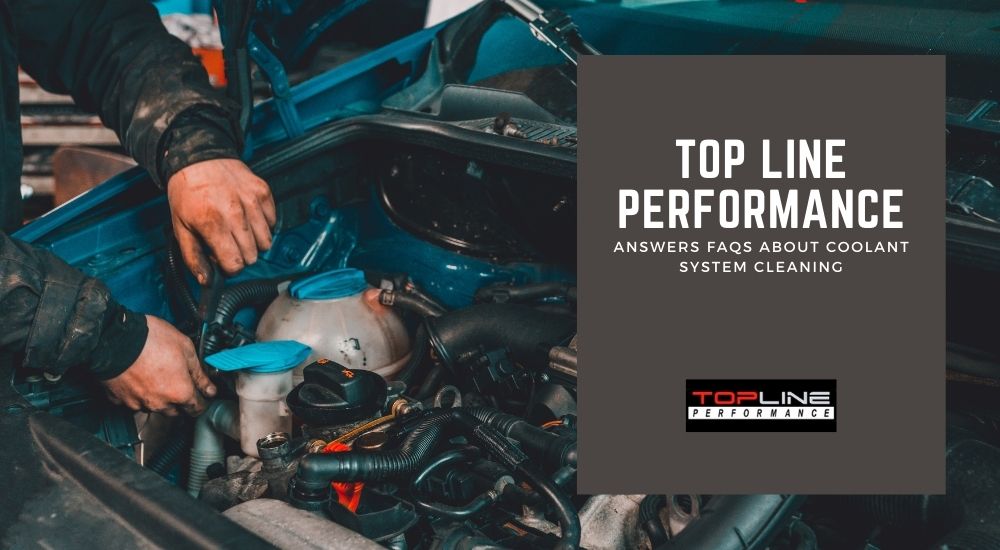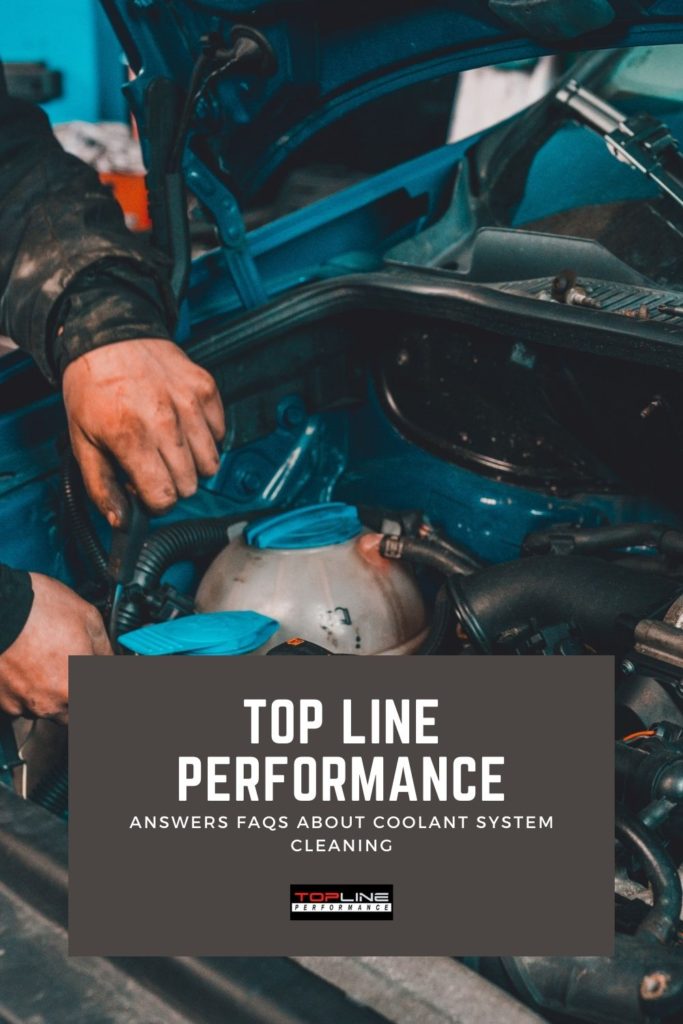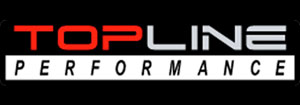
Top Line Performance, an auto repair shop in Huntington Beach Ca, is here to set the record straight about your car’s coolant system. Many drivers ask, “when is the right time to change my engine coolant?” This really depends on the make of your vehicle and how often you use it, but on average you are advised to change the coolant every 30,000 miles. Unfortunately, a few drivers have never changed their car’s coolant fluid at all.
The Auto Repair Shop in Huntington Beach Ca Explains The Job Of The Coolant Fluid
Coolant fluid is the active fluid for your vehicle’s cooling system and manages the operational condition of your engine. Because the engine manages massive amounts of heat, it needs to maintain a specific temperature range for optimal performance. No matter whether it’s hot or cold outside, the cooling fluid lets the cooling system (including the radiator) maintain this optimal temperature for both the engine and the radiator. You can think of it like this: coolant fluid acts as both your heater for the cold and as your a/c for when it’s hot!
How Does Coolant Fluid Move Through The System?
Top Line Performance, one of the best auto repair shops in Huntington Beach Ca, explains that a vehicle’s coolant system works on a loop, pushing out a combination of water and antifreeze to the car’s radiator to regulate the engine’s temperature. Due to the fact that coolant sponges up the heat produced by the engine and carries it to the radiator to cool down, it’s fair to say that low or weak coolant levels are a red flag and a sign that your automobile could be overheating!
Why Is A Coolant Exchange So Essential?
Coolant dissolves just like all other engine fluids. Similar to motor oil, which has important engine performance additives, the car’s coolant has additives that avoid boiling, freezing, and corrosion. When these additives are drained, contaminants and debris can start to build up on the car’s radiator, affecting its performance. Therefore, it’s imperative to have your coolant fluid exchanged on a regular basis.
How Often Should You Do A Coolant Exchange On Your Car?
You might be surprised to find out that car coolants different service lives depending on the model. Some newer cars, for example, have long-lasting fluids that are pre-installed on the assembly line and require minimal servicing. So if your car has long-lasting fluids, congratulations! However, you still need a coolant exchange at least every 15,000 miles. Most of the time you can find coolant information and any specifications in your car owner’s manual.
What Is The Advantage Of Having A Coolant Fluid Exchange Done?
The main advantage of exchanging your car’s coolant fluid is to ensure your vehicle operates at an optimal temperature. When the coolant is old, it can cause overheating, and if your car doesn’t have coolant or has low coolant levels, it can result in awful car issues such as blown gaskets, warped cylinder heads, and damage to the car’s water pump and radiator. If the temperature gauge is increasing, don’t turn a blind eye, go to your local mechanic to have your coolant checked out before the system breaks.
How Does Coolant/Antifreeze Break Down?
Unfortunately, your coolant or antifreeze is bound to break down over time. When they are performing at their best, the additives in coolant/antifreeze offer protection, prevent corrosion and scale formation in the vehicle’s radiator and engine. Eventually, these additives get depleted, and the solution turns to alkaline, which can make your car susceptible to expensive auto repair in Huntington Beach and probably engine failure.
Typical coolant/antifreeze has a short service life, but it’s vital to keep in mind that not all vehicles work in harmony with “long-lasting” types of antifreeze. All coolants, when working normally, in the course of time become soiled and contaminated with debris from a car’s cooling system. When this occurs, the coolant won’t be able to properly regulate and maintain your car’s temperature, and in addition, can be lead to your radiator and heater clogging with rust. Furthermore, the failure to adjust temperatures in your car’s engine can badly affect the other parts of your vehicle, such as head gaskets, cylinder blocks, and o-rings.
Can Awful Things Occur If My Vehicle Has Low Or Weak Coolant?
If your engine overheats because of insufficient coolant, you put yourself and your car in dangerous conditions. The engine can seize up, crack, and just stop working while you are driving your vehicle, and is similar to how cold weather can lead to freezing damage in your engine, a dangerous scenario that you should avoid at all costs.
What Are Signs That The Vehicle’s Engine Requires Exchanging Or A Check-Up?
Here are some significant coolant issue signals:
Low Coolant Levels
When the car’s coolant is low there could be a leakage in the cooling system, and you may even be able to see, or even smell, the leak under the car. If you observe this, get your coolant checked out as soon as possible! Other offenders also include a bad radiator cap, a blocked radiator, or a damaged sensor.
Discolored Coolant
The color of the coolant should never change, so if it does you know it is contaminated with debris or that the additives within it have been drained from extended use. When coolant color changes or gets cloudy, take the vehicle to your car technician to confirm it has to be changed.
Engine overheats
This is the worst that can happen – the engine overheats, seizes up, and cracks, and as a result, your vehicle stops completely. If this occurs, you are a day late and a dollar short for fluid exchange, and the only solution is an entire engine exchange.
So now that you have learned the importance of your car’s coolant, make sure to have your car’s coolant exchange examined properly and on a regular basis from a trusted auto repair in Huntington Beach like Top Line Performance.


